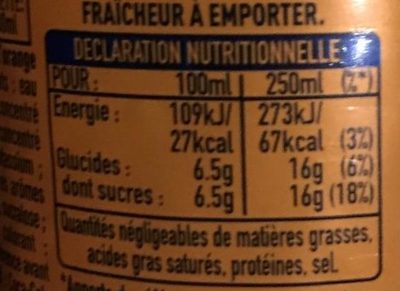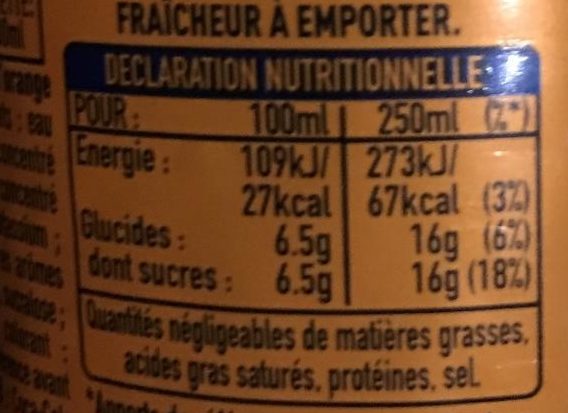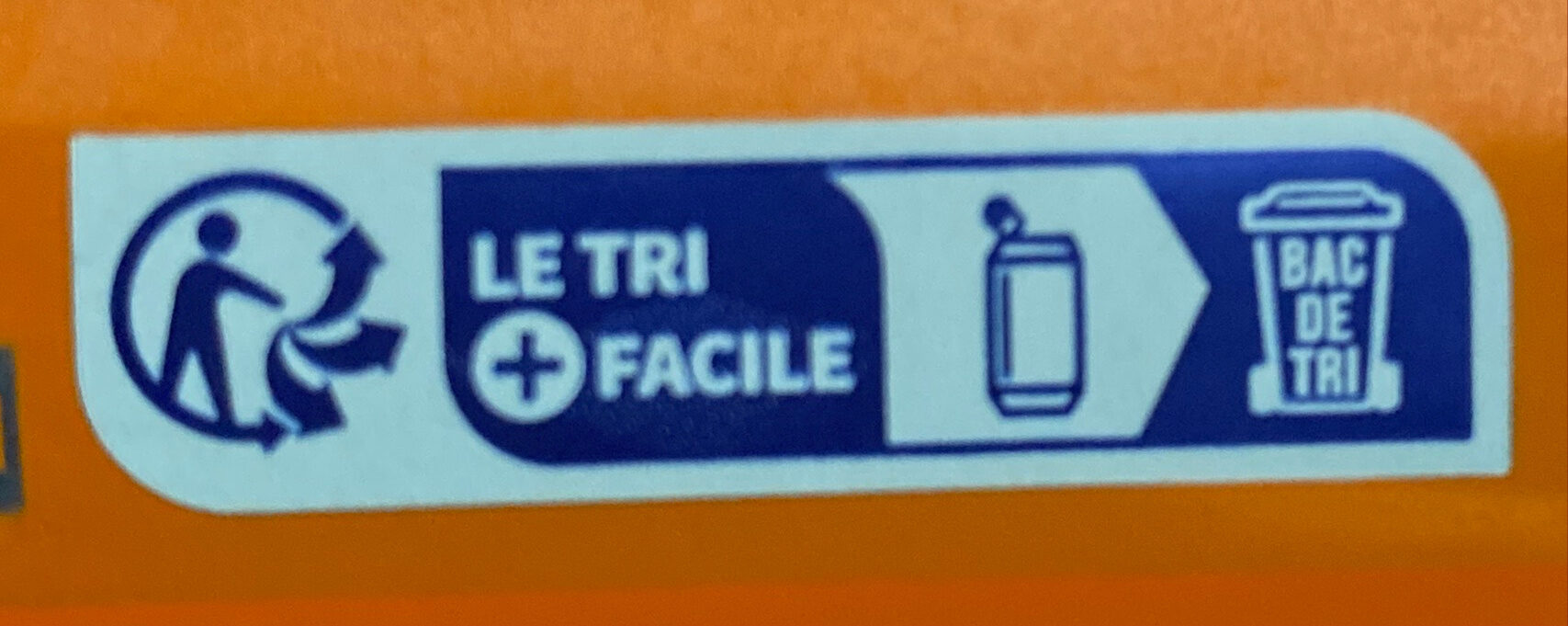Fanta orange - 330ml
Barcode: 5449000214805 (EAN / EAN-13)
Quantity: 330ml
Packaging: fr:Métal à recycler
Brands: Fanta
Categories: Plant-based foods and beverages, Beverages, Plant-based beverages, Carbonated drinks, Fruit-based beverages, Artificially sweetened beverages, Sodas, Fruit sodas, Orange soft drinks, Sweetened beverages
Labels, certifications, awards:
Green Dot, Made in France, Triman

Origin of ingredients: France, Brazil
Link to the product page on the official site of the producer: http://fanta.fr
Matching with your preferences
Report a problem
Data sources
Product added on by openfoodfacts-contributors
Last edit of product page on by foodvisor.
Product page also edited by beniben, charlesnepote, date-limite-app, ecoscore-impact-estimator, epfoodeye, foodless, inf, julie-yuka, karbon, kazse, kiliweb, off.03606f1a-0d69-4616-94c5-9f6cf7638e31, packbot, quechoisir, roboto-app, segundo, szmi, tacite, tacite-mass-editor, yuka.SC9FQ01yb3dxc0V6bS9BbitUSHAydmh0M29TekFYT1dNY2d4SUE9PQ, yuka.U1pvTlRQVVFyZG9zbGR0dTBFTFA0OTh2bmFLRGMxTytJTlVxSVE9PQ, yuka.UVlaZUZid0RoZUpYdjhZdTVrbnk5ZFJPM0x1NGZWT2VGL29oSVE9PQ, yuka.Ukw4bEZMMEFqZUVMeGNNVXdTS053UEYyeTVXWmNENlNlc0FlSWc9PQ, yuka.UkxBQURJRXdwdjRwdS8wQThTeVA0dGN1MkxLUVVuL21CdFE3SUE9PQ, yuka.VnE4ZUw2Y2ZuZWxUeXZJMzEwejU2c3hIeksrblJGSG9KOG9MSWc9PQ, yuka.WDQwUEFZa2w5dHNYZ3ZJQTlESFYxZmR5NnB5d2REaXFMdlFRSVE9PQ, yuka.WUpFUUVhTUdpUFF4d3NaaC9VM2F4ZmhZM01hemZHNlJOL1VCSWc9PQ, yuka.WW9rdU1vNHRtOGt5bTg4RXd3TEZ4b2xJeGJDMVprNnBMTTFPSVE9PQ, yuka.YjdzSEc0ZysrY2dQdmZSdjVFbmErODEreTRhSVhIcXdLY0VLSVE9PQ, yuka.ZDY0Qklac2ppTUVObk04OXdSSGMxOTFleVlIMlYxK2RCc05NSUE9PQ, yukafix.












